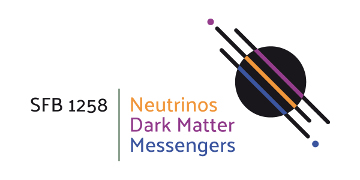The KATRIN experiment at KIT with partners from eight countries is the world's most sensitive scale for neutrinos, probably the most fascinating elementary particles in our universe. To this end, the unique project investigates the energy distribution of electrons from the beta decay of tritium, an unstable hydrogen isotope. The high-tech experiment, which is 70 m long in total, houses the world's most intensive source of high-purity tritium as well as a huge spectrometer with which the energy of the decay electrons can be determined with unprecedented accuracy.
Susanne Mertens coordinated the data analysis
At the beginning of 2022, KATRIN made an important experimental breakthrough: the researchers determined the upper limit of the neutrino mass to be 0.8 electron volts. Valerius and Mertens played a significant part in this result, which received much attention around the world. Her election as the new KATRIN spokeswoman now honors her many years of commitment.
Susanne Mertens' working group at TUM and the Max Planck Institute for Physics coordinated the data analysis for the latest KATRIN result. After successfully completing the neutrino mass measurements, which is planned for 2024, KATRIN is to be upgraded with the new TRISTAN detector system for the search for sterile neutrinos.
Ambitious plans for new measurements after KATRIN upgrade
Susanne Mertens, TUM professor and principle investigator at the Collaborative Research Center 1258, is in charge of the development of TRISTAN funded by an ERC Starting Grant: "The physical potential of KATRIN is far from being exploited and our ambitious plans for new measurements, for example on sterile neutrinos with the new TRISTAN detector, will further increase the worldwide visibility of KATRIN." Her colleague at KIT, the particle physicist Kathrin Valerius, is also looking forward to the new tasks: "It is great that we can now support the KATRIN collaboration as co-speakers in achieving the next scientific goals.”
Their predecessors, the long-standing KATRIN co-speakers, Guido Drexlin (KIT) and Christian Weinheimer (University of Münster), have not only been responsible for coordinating the international research network since the collaboration was founded in 2001, they also bore the main responsibility for more than two decades for the structure and scientific program of KATRIN and made key contributions to the success of the measurements with their working groups.



